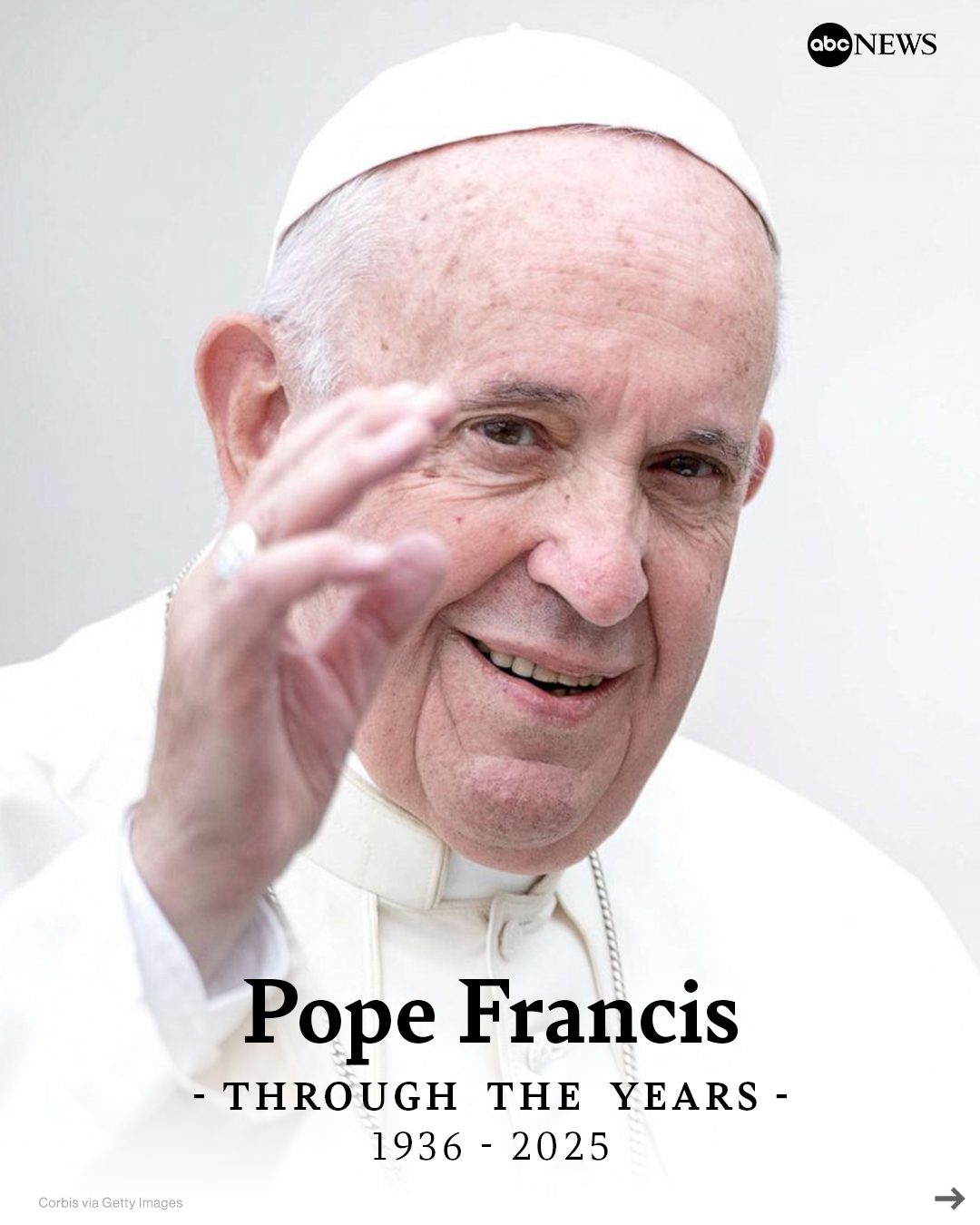Pope Francis Dies at 88: World Mourns Loss of First Jesuit and Latin American Pontiff Whose Legacy of Compassion, Reform, and Global Unity Reshaped the Modern Catholic Church
Vatican City – April 21, 2025 — The Roman Catholic Church and people around the globe are in mourning following the death of Pope Francis, who passed away on April 21 at the age of 88. Revered for his humility, reformist spirit, and unwavering commitment to the marginalized, Pope Francis leaves behind a legacy that has reshaped the modern papacy and touched countless lives across faiths and nations.
The Vatican confirmed that the Holy Father died peacefully in his residence after ongoing health concerns in recent months. His final days were spent under close medical care, with frequent visits from aides, clergy, and members of his inner circle.
A Pope of Firsts
Born Jorge Mario Bergoglio on December 17, 1936, in Buenos Aires, Argentina, Pope Francis was a man of profound simplicity and deep spiritual conviction. The son of Italian immigrants, he entered the Society of Jesus (Jesuits) in 1958 and was ordained a priest in 1969.
On March 13, 2013, Bergoglio was elected as the 266th pope of the Roman Catholic Church, making history as the first Jesuit pope, the first pope from the Americas, and the first non-European pope in over 1,200 years.
Choosing the name Francis in honor of St. Francis of Assisi, he signaled a commitment to the poor, to peace, and to environmental stewardship — themes that would define his entire pontificate.
A Transformative Leader
During his 12-year papacy, Pope Francis emerged as a transformative leader who sought to bring the Catholic Church closer to the people. His approach emphasized mercy over judgment, inclusion over exclusion, and dialogue over division.
He famously eschewed the traditional trappings of power, residing in the modest Vatican guesthouse instead of the Apostolic Palace, and often rode in a Ford Focus instead of the customary popemobile.
His groundbreaking encyclicals, including “Laudato Si'” on environmental care and “Fratelli Tutti” on fraternity and social friendship, earned praise not only from Catholics but also from global leaders and environmentalists.
Francis also worked tirelessly to reform the Church’s bureaucracy, confront the clergy sexual abuse crisis with greater transparency, and promote a more welcoming attitude toward LGBTQ+ individuals and divorced Catholics. His call for a “poor Church for the poor” resonated deeply in a world grappling with inequality.
Global Influence and Unifying Voice
Pope Francis played a key diplomatic and humanitarian role on the world stage, advocating for peace in conflict zones, supporting refugees, and championing interfaith cooperation.
His 2019 visit to the Arabian Peninsula, where he signed a landmark declaration on human fraternity with a leading Sunni cleric, was seen as a bold step toward Christian-Muslim dialogue. He also visited war-torn and impoverished nations, often bringing global attention to forgotten crises.
Despite facing criticism from conservative factions within the Church, Pope Francis maintained his course, often reminding Catholics that the Church should be “a field hospital after battle,” offering healing rather than condemnation.
A Humble Goodbye
In recent years, Pope Francis openly discussed the possibility of resigning due to health issues, as his predecessor Benedict XVI had done. However, he continued to serve despite declining mobility and respiratory challenges.
His final days were marked by prayer, reflection, and communion with those closest to him. According to a Vatican spokesperson, his last words were a simple invocation: “Señor, te amo” — “Lord, I love you.”
Tributes Pour In
Tributes to Pope Francis have poured in from religious and secular leaders worldwide.
U.S. President [Name] called him “a shepherd of extraordinary compassion and courage.” United Nations Secretary-General António Guterres hailed him as “a moral compass in an age of division.” Leaders from Orthodox, Protestant, Jewish, Muslim, and Buddhist traditions all acknowledged his efforts to foster understanding and peace.
Cardinal Pietro Parolin, the Vatican Secretary of State, said, “Pope Francis was a servant of the Gospel who never ceased to walk with the people — especially the poor, the forgotten, and the wounded. He reminded the Church of its true heart.”
Funeral Plans and Succession
The Vatican has announced that a public viewing of Pope Francis’s body will be held in St. Peter’s Basilica beginning April 23. His funeral Mass is scheduled for April 25, to be presided over by Cardinal Parolin in St. Peter’s Square.
Following tradition, a conclave will be called in the coming weeks, during which eligible cardinals will gather to elect the next pope.
A Lasting Legacy
Pope Francis’s papacy will be remembered not only for his reforms and public gestures, but also for his unwavering belief in the goodness of humanity and the mercy of God.
He taught the world that faith must be lived with courage and humility. That leaders should lead by example. That the Church, at its best, is not a fortress, but a home with open doors.
As millions around the globe mourn his passing, they also celebrate a life that broke barriers, touched hearts, and moved mountains — one act of compassion at a time.
